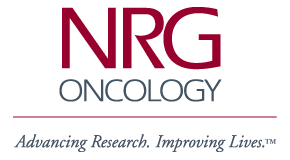

NSABP Members' Area
Password Protected - Access
Limited to NSABP Participating
Institutions Only
NSABP Foundation, Inc.
General NSABP Information
Financial Conflicts of
Interest Policy
Contact the NSABP
Employment

Clinical Trials Information
Clinical Trials Overview
Protocol Chart
Never Say Lost
Treatment Trials Information
Protocol B-51
Protocol B-52
Protocol B-53/S1207
Protocol B-55/BIG 6-13
Prevention Trials Information
Protocol P-1 - BCPT
Protocol P-2 - STAR
To report problems, ask
questions or make comments,
please send e-mail to:
Webmaster@nsabp.pitt.edu
Postoperative Adjuvant Chemotherapy or Radiation Therapy for Rectal Cancer: Results from NSABP Protocol R-01
Fisher B, Wolmark N, Rockette H, Redmond C, Deutsch M, Wickerham DL, Fisher ER, Caplan R, Jones J, Lerner H, Gordon P, Feldman M, Cruz A, Legault-Poisson S, Wexler M, Lawrence W, and Robidoux A
Journal of the National Cancer Institute 80:21-29, 1988
Abstract
Information is presented from 555 patients with Dukes B and C rectal cancers treated by curative resection who were entered into the National Surgical Adjuvant Breast and Bowel Project (NSABP) protocol R-01 between November 1977 and October 1986. Their average time on study was 64.1 months. The patients were randomized to receive no further treatment (184 patients), postoperative adjuvant chemotherapy with 5-fluorouracil, semustine, and vincristine (MOF) (187 patients), or postoperative radiation therapy (184 patients). The chemotherapy group, when compared with the group treated by surgery alone, demonstrated an overall improvement in disease-free survival (P = .006) and in survival (P = .05). Employing the proportional hazards model, a global test was used to determine the presence of treatment interactions. Investigation of stratification variables employed in this study indicated that sex, and to a lesser extent age and Dukes stage, made individual contributions to the disease-free survival and the survival benefit from chemotherapy. When evaluated according to sex, the benefit for chemotherapy at 5 years, both in disease-free survival (29% vs. 47%; P less than .001; relative odds, 2.00) and in survival (37% vs. 60%; P = .001; relative odds, 1.93), was restricted to males. When males were tested for age trend with the use of a logistic regression analysis, chemotherapy was found to be more advantageous in younger patients. When the group receiving post-operative radiation (4,600-4,700 rad in 26-27 fractions; 5,100-5,300 rad maximum at the perineum) was compared to the group treated only by surgery, there was an overall reduction in local-regional recurrence from 25% to 16% (P = .06). No significant benefit in overall disease-free survival (P = .4) or survival (P = .7) from the use of radiation has been demonstrated. The global test for interaction to identify heterogeneity of response to radiation within subsets of patients was not significant. In conclusion, this investigation has demonstrated a benefit from adjuvant chemotherapy (MOF) for the management of rectal cancer. The observed advantage was restricted to males. Postoperative radiation therapy reduced the incidence of local-regional recurrence, but it failed to affect overall disease-free survival and survival.
National Surgical Adjuvant Breast and Bowel Project, Pittsburgh, PA.